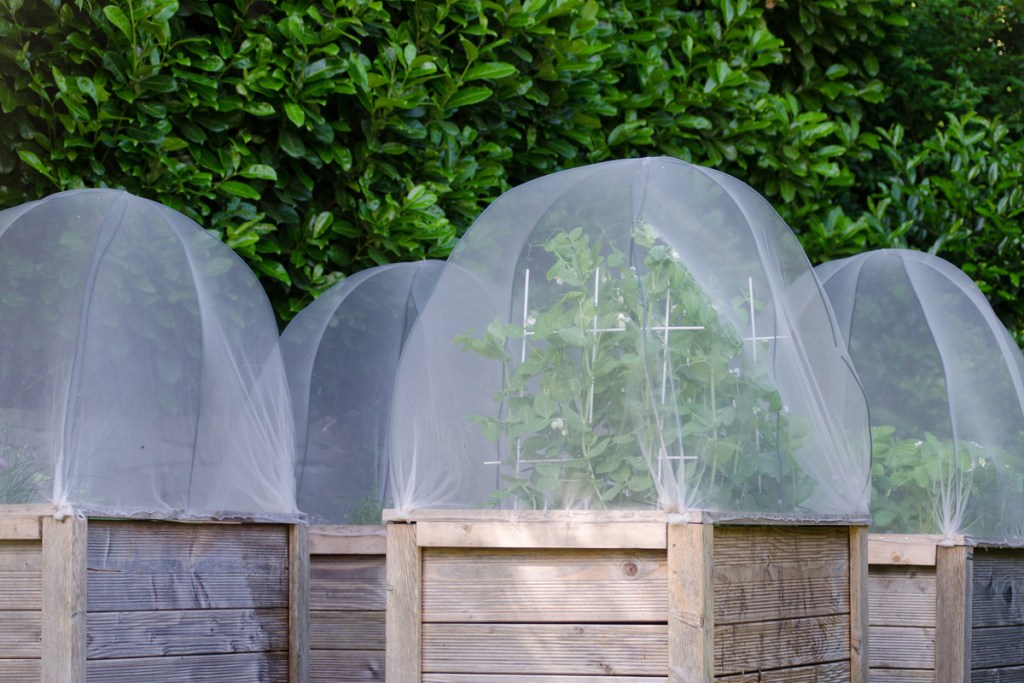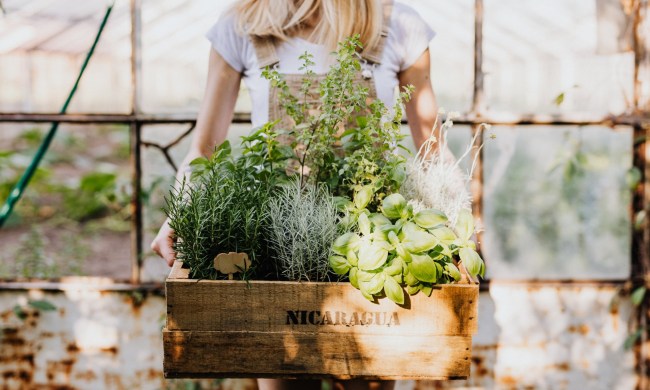Pests are just a fact of life anywhere there are plants around to feed them. As such, pest control is an ongoing issue for most gardeners, but it can be hard to find a spray that works for you. If you’re new to gardening or just new to the pest control aisle, you may not have heard of permethrin before. If you’re confused about what permethrin is, where it comes from, and what it’s good for, then you’re in the right place. We’re here to clear up questions you have, starting with the basics.

What is permethrin?
Permethrin is a compound of three chemicals based on a similar compound, pyrethrin, found in flowers in the chrysanthemum family. Chrysanthemums produce pyrethrin as a form of natural pesticide. Permethrin is the synthetic form of this natural compound, so there are some slight differences between the ratio of each chemical in the spray versus in individual plants — namely, the ratio in each individual plant can vary, but the ratio used in sprays is consistent so that you always know exactly what you’re getting.
However, most permethrin garden sprays are not 100% permethrin. Permethrin is typically used as the active ingredient, but another chemical is added to extend its lifespan and make it more effective.
How is permethrin used?
Permethrin is available mainly in sprays, although some concentrates are available. The most common use for permethrin sprays is to spray it on a cloth to keep insects, especially mosquitoes, at bay during long hikes or gardening sessions. The permethrin soaks into the cloth and kills pests when they land on it.
It’s important to read the instructions that come with any pesticide you use, and permethrin sprays are no exception. Some permethrin sprays are made specifically for cloth, while others may not be safe for indoor use or may be designed for an overall lawn misting rather than for use directly on garden plants.
What pests are permethrin effective against?
Permethrin is effective against a wide range of insects, including ticks, mosquitoes, lice, mites, cockroaches, fleas, and flies. It works by interfering with the neurons of impacted creatures, causing paralysis and death. It does this on contact, meaning it keeps pests from nibbling your plants in the first place. It is even used in treating mosquito netting and is a main ingredient in some flea collars for dogs, although it isn’t safe for cats.
What are the drawbacks and limitations of permethrin?
In addition to killing pests, permethrin can also harm or kill beneficial insects, such as bees and other pollinators, and cats. If enough of it contaminates a body of water, it can negatively affect fish and other aquatic life. There are a few precautions you can take to limit the potential harm, though. Using permethrins on indoor plants, for example, can reduce both the number of pollinators exposed to it and the amount of pesticide that can potentially find its way into waterways. If you have a cat, keep your plants in an area your cat can’t access.
If you have outdoor plants that you plan on using permethrin on, you can use a pollinator net to keep pollinators away from your plants. You may be able to cover the blooms with a bowl and target the leaves with your spray, but this isn’t a foolproof plan.

Where can you find reliable permethrin spray?
Your local gardening supply store will likely have several different permethrin sprays available, but if you prefer to get yours online, or if you’d like to go into the store with an idea of what brands to look for, here’s what to look for.
Before buying a permethrin spray, it is important to check what it’s designed to be used on. Many permethrin sprays are designed for use on cloth specifically, which is great if you’re looking to set up netting or a cloth barricade around your plants. However, this isn’t ideal if you just want something to spray on your plants.
One of our favorite multi-use products is Voluntary Purchasing Group Inc.’s Hi-Yield Lawn, Garden, Pet and Livestock Insect Control
It’s important to remember that every pesticide has its benefits and drawbacks, and it’s up to you to decide which pest control method is right for you and your plants. A lot of pest controls boil down to trial and error, and permethrin is one of many options. Give it a try and see what you and your garden think!



